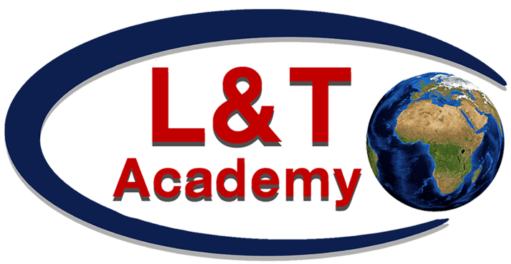Description
Course Description:
This course offers an introduction to the study of culture, examining its various dimensions including norms, values, beliefs, and practices. Students will explore different cultural frameworks, investigate how cultures shape and are shaped by social, political, and economic factors, and gain insight into the complexities of cultural identity and diversity.
Course Objectives:
- Understand and define key concepts in cultural studies.
- Analyze the impact of culture on individual and collective identities.
- Explore the relationship between culture and various social institutions.
- Examine cultural practices and expressions from a comparative perspective.
- Develop critical thinking skills related to cultural analysis and interpretation.
Weekly Outline:
Week 1: Introduction to Cultural Studies
- Overview of the course and objectives.
- Defining culture: norms, values, symbols, and practices.
- Key concepts: ethnocentrism, cultural relativism, and cultural diversity.
- Readings: Introductory chapters from cultural studies textbooks.
Week 2: Theoretical Approaches to Culture
- Overview of major theoretical frameworks: functionalism, symbolic interactionism, and postmodernism.
- Introduction to key theorists: Clifford Geertz, Edward Said, and Michel Foucault.
- Readings: Selections from key theoretical texts and articles.
Week 3: Culture and Identity
- Exploring the concepts of individual and collective identity.
- The role of culture in shaping self-perception and social identity.
- Case studies: cultural identity in various societies.
- Readings: Articles and book chapters on identity formation.
Week 4: Cultural Symbols and Practices
- Understanding cultural symbols, rituals, and traditions.
- The significance of language, art, and religion in cultural expression.
- Case studies: Analysis of cultural symbols in different contexts.
- Readings: Selected case studies and cultural analysis texts.
Week 5: Culture and Social Institutions
- The relationship between culture and institutions such as family, education, and government.
- How institutions reflect and shape cultural norms and values.
- Case studies: Cultural practices in different institutional settings.
- Readings: Articles on culture and social institutions.
Week 6: Media and Popular Culture
- The impact of media and popular culture on cultural perceptions and practices.
- Analyzing the role of film, television, and social media in cultural dissemination.
- Case studies: Representation of culture in media and entertainment.
- Readings: Selections from media studies and popular culture texts.
Week 7: Globalization and Cultural Exchange
- The effects of globalization on cultural exchange and hybridization.
- The concept of cultural imperialism and its implications.
- Case studies: Globalization’s impact on local cultures.
- Readings: Articles on globalization and cultural exchange.
Week 8: Cultural Diversity and Multiculturalism
- Understanding cultural diversity and the principles of multiculturalism.
- Exploring issues of assimilation, integration, and cultural preservation.
- Case studies: Multicultural societies and their challenges.
- Readings: Texts on multiculturalism and diversity.
Week 9: Indigenous Cultures and Cultural Preservation
- The significance of indigenous cultures and their contributions to global culture.
- Challenges faced by indigenous communities in preserving their cultural heritage.
- Case studies: Efforts to maintain and revitalize indigenous cultures.
- Readings: Articles and book chapters on indigenous cultures.
Week 10: Culture and Power
- The relationship between culture and power dynamics.
- Analyzing how culture is used to reinforce or challenge power structures.
- Case studies: Cultural resistance and activism.
- Readings: Texts on culture and power, including feminist and postcolonial perspectives.
Week 11: Cultural Change and Continuity
- Exploring processes of cultural change and the factors that drive them.
- The concept of cultural continuity and its significance.
- Case studies: Historical and contemporary examples of cultural change.
- Readings: Articles on cultural change and continuity.
Week 12: Review and Application
- Review of key concepts and themes covered in the course.
- Application of cultural analysis skills to contemporary issues and case studies.
- Final project presentations or papers: Students present their analysis of a cultural topic or case study.
- Readings: Summary articles and reflection pieces.
Assessment Methods:
- Weekly readings and participation in class discussions.
- Written assignments (response papers, case studies).
- Midterm exam focused on theoretical concepts and cultural analysis.
- Final project or presentation involving in-depth analysis of a cultural topic or case study.
Recommended Texts and Resources:
- Culture and Identity: An Introduction to Cultural Studies by A. S. Giddens.
- The Interpretation of Cultures by Clifford Geertz.
- Culture: A Critical Review of Concepts and Definitions by Alfred Kroeber and Clyde Kluckhohn.
- Selections from academic journals and online resources related to cultural studies.
Final Project:
Students will select a cultural topic or case study of interest, conduct research, and present their findings in a written report or oral presentation. This project will involve applying theoretical concepts and analytical skills developed throughout the course.
This outline provides a comprehensive introduction to cultural studies, integrating theoretical perspectives with practical analysis of cultural phenomena. It aims to develop students’ understanding of cultural dynamics and their ability to critically engage with cultural texts and practices.







Reviews
There are no reviews yet.